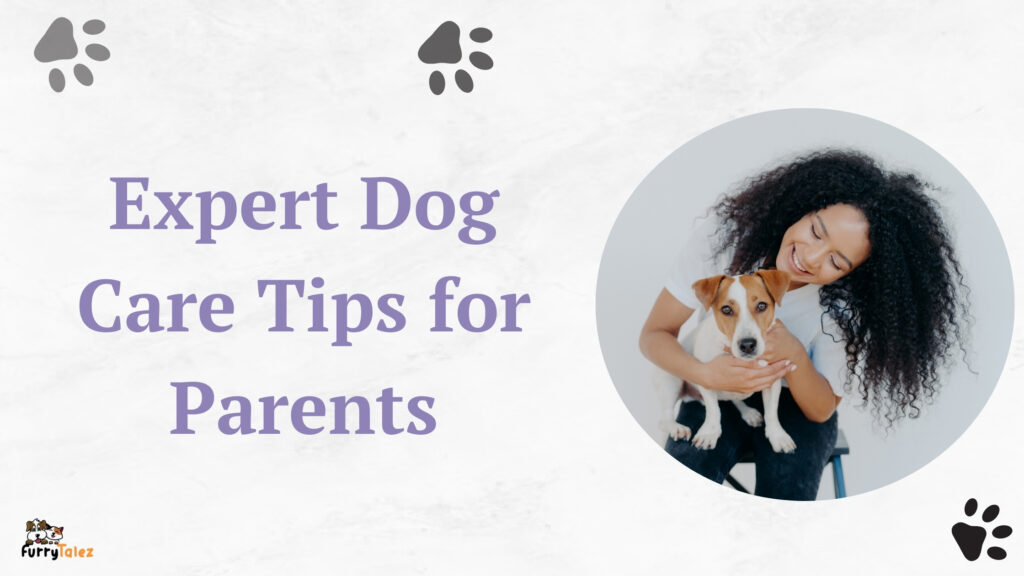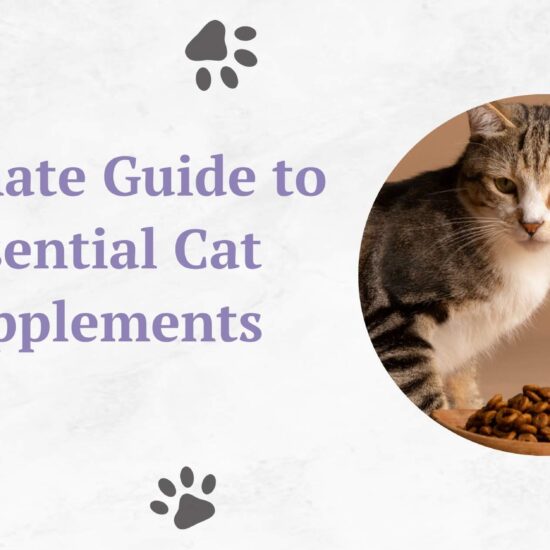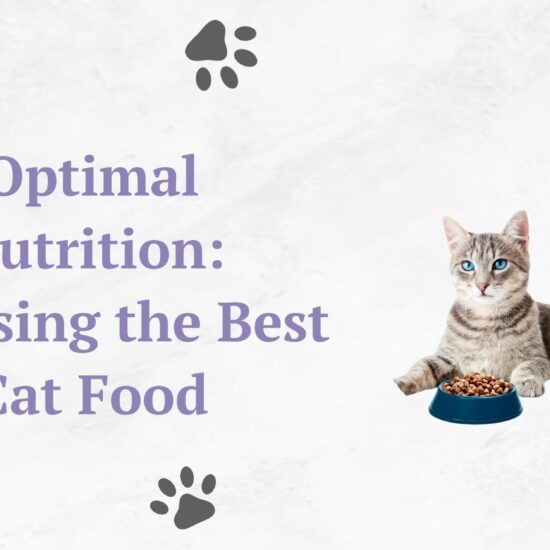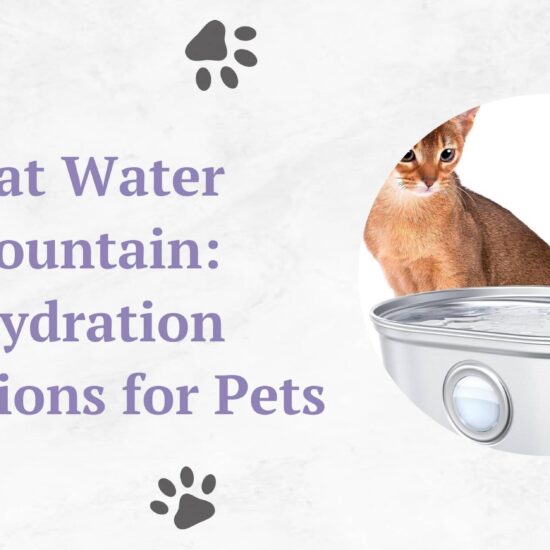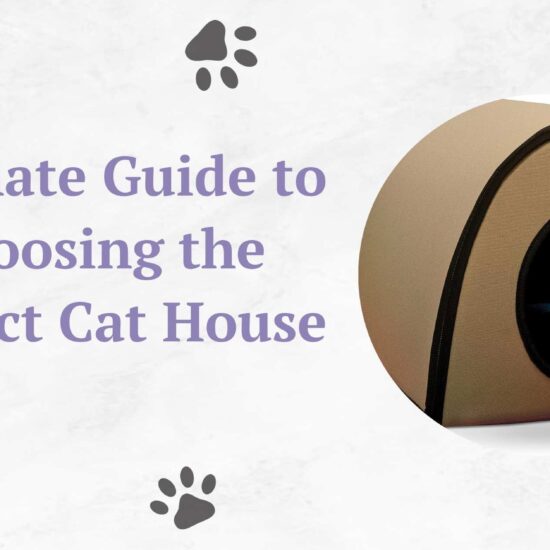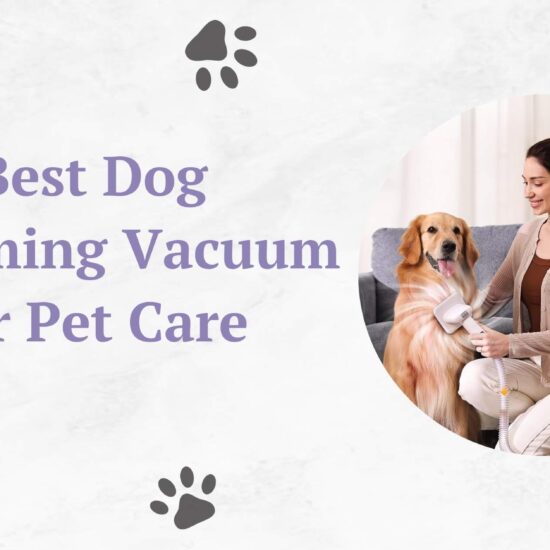It’s a happy occasion full of love and companionship to welcome a dog into your home. But happiness is not complete without the obligation to provide your pet the right attention and care.
Table of Contents
Introduction
As animal caregivers, we must arm ourselves with the information and abilities required to guarantee our dogs’ happiness and well-being. Here are seven professional dog care suggestions that are suited to your needs and the needs of your cherished pet, so you may face the adventure of dog parenthood with confidence.

To be a responsible pet owner means to dedicate yourself to giving your animal companion the finest care possible. Your dog can have a happy, healthy, and meaningful life as a valued member of your family if you heed these seven professional dog care advices. Keep in mind that every dog is different, so adjust your routine of care to suit their particular requirements.
Provide a Balanced Diet
Your dog’s health and energy are largely dependent on their diet. Dogs need a balanced diet to be healthy, just like people do. It is imperative to guarantee that your pet is fed premium dog food that is suitable for their breed, age, and size. The ideal meal plan for your dog’s unique demands and dietary requirements should be determined in consultation with your veterinarian.

The proper ratios of protein, carbs, lipids, vitamins, and minerals are just a few of the dietary advice that your veterinarian may provide. Refrain from giving your dog table scraps or human food because many everyday goods, such as chocolate, onions, and grapes, can be toxic to dogs and result in major health problems.
Routine Veterinary Care
Frequent veterinary examinations are essential for tracking your dog’s health and identifying any possible problems early on. Make an appointment for your dog’s yearly wellness exam with your veterinarian. During these visits, your dog will receive examinations for general health, dental treatment, and parasite prevention.
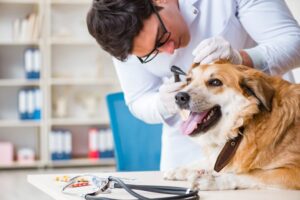
Preventive care procedures including heartworm prevention, flea and tick control, and diet counseling can also be guided by your veterinarian. To guarantee fast treatment and intervention, if necessary, be proactive in addressing any worries or changes in your dog’s behavior or health.
Regular Exercise and Mental Stimulation
For your dog to be healthy overall, mental and physical stimulation are essential. Dogs require frequent exercise to stay physically healthy and avoid health issues linked to fat, just like humans do. Depending on your dog’s age, breed, and activity level, make it a priority to give them regular opportunities to exercise, such as walking, jogging, fetch, or swimming.

To avoid boredom and keep your dog’s mind active, include mental enrichment exercises in their daily regimen. Interaction games, puzzle toys, and obedience training are all great methods to stimulate your mind and deepen your relationship with your pet care tips.
Maintain Proper Hygiene and Grooming
Maintaining your dog’s cleanliness, well-being, and comfort requires routine grooming. Regular brushing will help to distribute natural oils, keep your dog’s coat from matting, and remove loose hair. Use a mild dog shampoo that won’t remove your dog’s natural oils from their skin while giving them a bath.
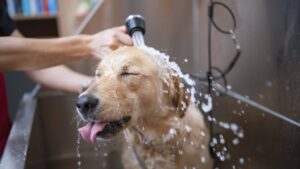
Regularly trim your dog’s nails to avoid pain and overgrowth, clean their ears to avoid infections, and brush their teeth to keep their dental hygiene in check. To keep your dog’s coat in excellent condition and avoid skin problems, you might also need to arrange for professional dog grooming appointments, depending on the breed and type of coat your dog has.
Incorporate Healthy Treats into your Dog’s Diet
When your dog receives healthy treats as part of their regular routine, it will benefit their general health. To guarantee that your sweets offer nutritional value, choose those that are low in calories and composed of healthy ingredients. You might want to think about adding dog collagen sticks to your pet’s diet.

In addition to being a delicious treat, collagen sticks offer vital nutrients that support your dog’s mobility and joint health. They also help to maintain oral health. Collagen sticks are an excellent, healthy choice that your dog will like. They are made from natural materials and don’t include any artificial additives. To keep your dog at his or her best, always remember to give treats in moderation and as part of a balanced diet.
Create a Safe and Comfortable Environment
Your house should be a cozy and secure retreat for your dog. Toxic materials and possible risks, such as electrical cables, household chemicals, and small items that could be ingested, should be removed from your home to make it pet-proof. As well as a comfortable bed, give your dog specific spaces for eating, sleeping, and playing. Make sure the temperature inside is comfortable and they have access to fresh water at all times. Your dog will feel more at ease and secure in their surroundings if you make their habitat cozy and safe.

Essential Dietary Tips For Optimal Pet Health
Every pet owner wants to see their animal friends enjoy happy, healthy lives. Providing a healthy food that is adapted to each pet’s individual needs is one of the most important parts of pet care. Pets need a balanced diet to grow and stay in good health, just like humans do. In this post, we’ll go over crucial dietary advice that will enable you to provide your cherished four-legged pet the healthiest diet possible, guaranteeing their longevity.

Note: There might be affiliate links mentioned here. We may receive a commission if you purchase a product through an affiliate link. There is no additional charge for you. Please do your own research before making any online purchases.
Give Plenty of Love and Attention
Not to mention, make sure your dog receives lots of love, care, and attention every single day. Dogs are social animals that like company from people. They develop close emotional ties to their owners. Playtime, snuggling, and bonding activities are great ways to spend quality time with your pet.

Keep an eye out for your dog’s needs, cues, and body language, and be sensitive to their feelings and general wellbeing. Your pet will feel appreciated and adored as a member of your family when they receive your love, care, and attention, which are the most priceless presents you can give them.
Choose Quality Ingredients
Pet food quality is an important consideration. Select pet food that is manufactured with premium ingredients and isn’t mixed with artificial additives, fillers, or leftovers. In order to ensure that your pet has enough protein for both general health and muscular building, look for products that include meat or fish listed as the main ingredient.
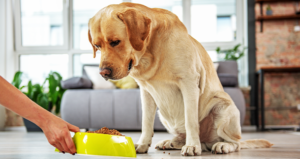
Portion Control
For the general health and lifespan of your pet, it is imperative that you maintain a healthy weight. To prevent overfeeding, abide by the portion size recommendations stated by your veterinarian or on pet food packaging. Measuring glasses can help you portion meals for your pet precisely. Treats and leftover table scraps should also be avoided since they may cause weight gain if given in excess.

Ensure Adequate Hydration
For the health and wellbeing of your pet, water is essential. It is important to always make sure your pet has access to clean, fresh water. Maintaining enough hydration is crucial for promoting good organ function, controlling body temperature, and facilitating digestion. Keep an eye on your pet’s water consumption, particularly if they are really active or it’s warmer outside.
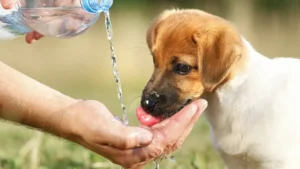
Balance Nutritional Needs
For the health of your pet, a balanced diet is essential. Make sure the protein, carbs, fats, vitamins, and minerals are all balanced in their meals. For information on the exact nutritional needs of your pet, depending on age, breed, size, and activity level, speak with your veterinarian. In order to guarantee that kids get a diverse range of nutrients, think about including a selection of foods in their diet.

Consider Supplements
Dietary supplements could occasionally be advantageous for the well-being of your pet. Supplements that are often used to enhance joint health, skin and coat health, and digestive function are glucosamine, probiotics, and omega-3 fatty acids. To make sure they are suitable and safe, you must speak with your veterinarian before adding any supplements to your pet’s diet.
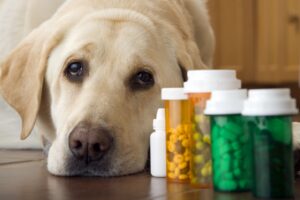
Avoid Harmful Foods
For pets, several foods that are healthy for people may be poisonous or hazardous. Treating your pet with chocolate, onions, garlic, raisins, grapes, avocados, and xylitol-containing items should be avoided because they can cause major health problems, such as upset stomachs and organ failure. Watch out for splintered bones that could result in internal injury or choking.

Monitor for Allergies and Sensitivities
Pets are susceptible to dietary allergies and sensitivities just like people are. A negative reaction to a certain food ingredient may manifest as symptoms like itching, skin rashes, upset stomach, or ear infections. Be alert for these signs. See your veterinarian to decide the best course of action, which may involve converting to a hypoallergenic diet, if you suspect your pet has a food allergy or sensitivity.
Take Care of Your Pet’s Basic Needs
Brush your pet’s teeth regularly
It’s not just humans who require dental brushing; dogs too require it. To get rid of plaque and stop the formation of tartar, it is advised that they wash their teeth at least three times a week. Early acclimatization to this schedule will prevent fear or resistance to brushing later in life. Additionally, keep in mind that toothpaste intended for humans might be hazardous to pets if ingested.
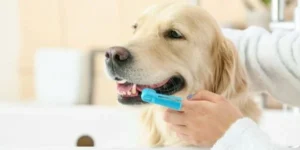
Keep your pet hydrated
Make sure your dog’s water bowl is always clean by giving it regular refills and cleaning to avoid bacteria growth. Recall that animals are dependent on you for water replenishment, unlike humans. It is not advisable to leave fresh water alone for several days. For better digestion, energy levels, and cognitive function, dogs should drink at least one ounce of water for every pound of body weight each day.
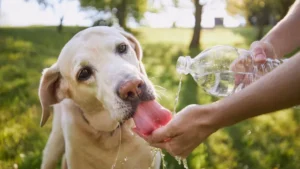
Pay attention to how much your pet eats
Over a third (34%) of dogs have been identified as fat according to the most recent data from Banfield Pet Hospital. Unfortunately, there are a number of health dangers that overweight dogs must deal with, such as impaired immune systems, metabolic disorders, and cardiac problems. Though it may be alluring to lavish your pet with attention, keep in mind that overfeeding can result in major health issues



